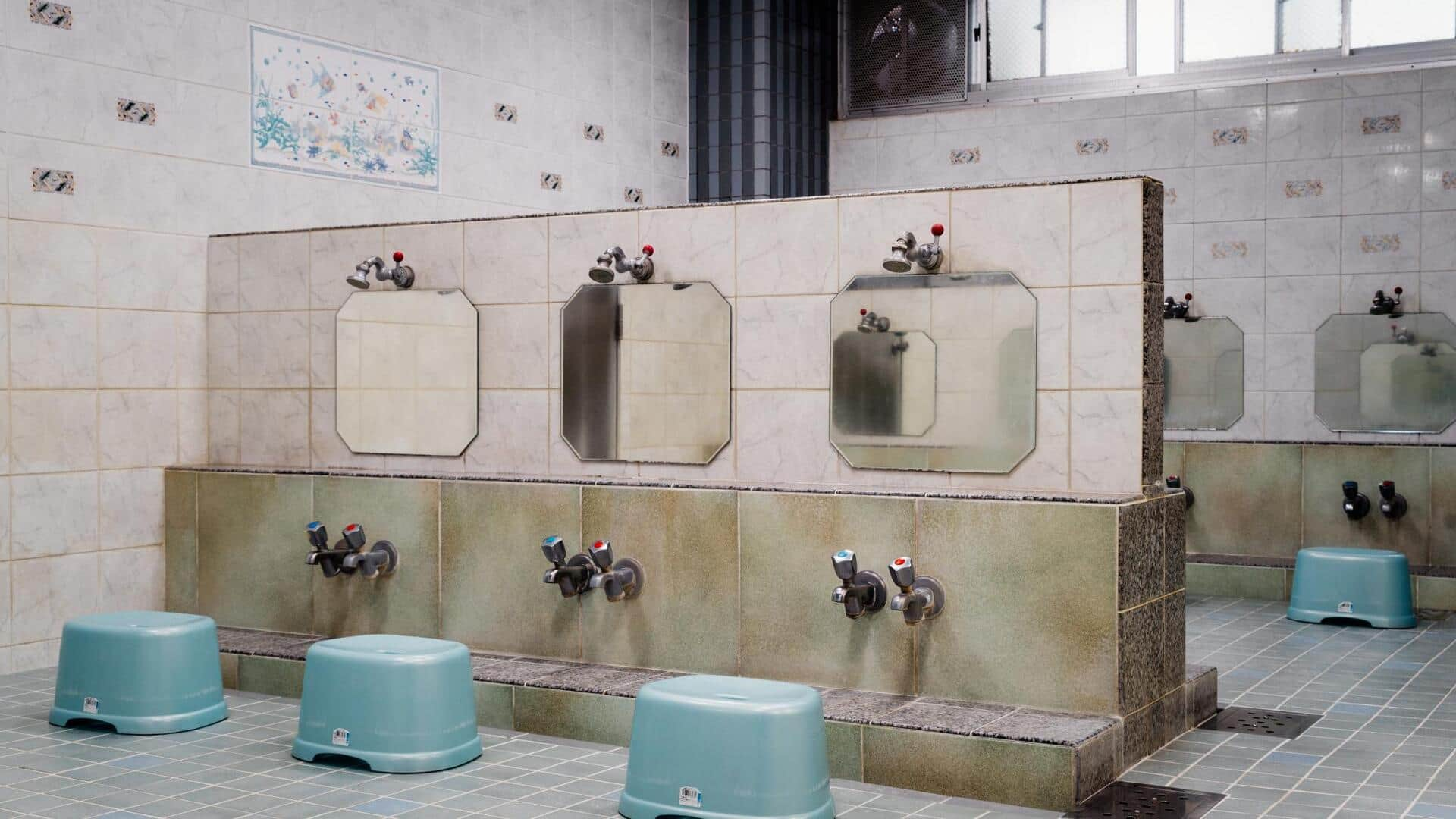
Japanese communal bathing traditions: 5 interesting facts
What's the story
Japanese communal bathing, or sento/onsen, is a centuries-old cultural practice. These baths are not just a matter of cleanliness, but also an experience of socializing and relaxation. The traditions behind these communal baths are rich and varied, giving an insight into Japanese culture and lifestyle. Here are five surprising facts about this unique tradition that make it stand out and the customs involved.
#1
Bathing etiquette is strictly followed
In Japanese communal baths, etiquette is the most important thing. Before stepping into the bath, one has to wash themselves thoroughly at designated stations. This keeps the shared water clean for everyone. Loud talking or splashing water is mostly frowned upon to keep a peaceful atmosphere. These rules create an environment of respect and tranquility.
#2
Tattoos can be controversial
Historically, tattoos have also been linked with organized crime in Japan, which is why many onsens do not allow people with visible tattoos to enter. However, this perception is gradually changing with an increasing number of tourists visiting Japan. Some modern facilities even allow tattoos or give guests cover-up stickers if they want to enjoy the baths without disturbing others.
#3
Natural hot springs have healing properties
Many onsens are situated near natural hot springs thought to have therapeutic benefits because of their mineral content. These minerals differ from place to place but typically include sulfur, sodium chloride, and calcium carbonate. Bathing in these waters is believed to enhance circulation, ease muscle pain, and promote relaxation.
#4
Gender segregation is common practice
Most traditional onsens divide men and women into different bathing areas for privacy. This way, bathers can enjoy their time in the water without worrying about modesty or propriety. Some modern facilities do offer mixed-gender options but usually provide separate times or sections for each gender.
Tip 5
Communal baths are social hubs
Beyond hygiene and relaxation, communal baths also act as social spaces where people can connect with friends or family members away from daily distractions like phones or work obligations. Conversations flow naturally in this setting as individuals unwind together after a long day's work—strengthening bonds within communities through shared experiences in these serene environments.